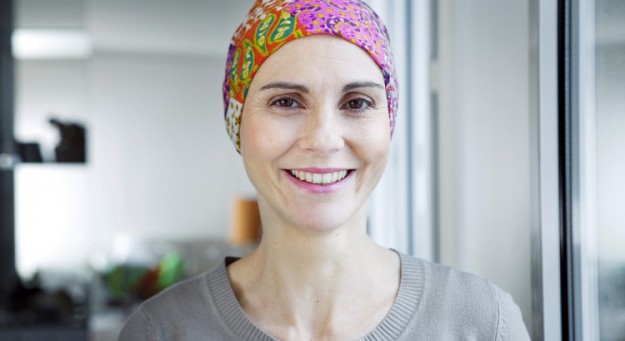Cancer: Should we speak about it at work or not?
mis à jour le 14 July 2015 à 18:33Every day 1000 people learn that they have cancer. Approximately half these people are in employment. How should one tell managers and colleagues about one’s illness? Here are some testimonials.
Only 24% of people continue to work three months after their cancer diagnosis, and 40 % of them report that they have been victims of professional discrimination.
A JOB 'DATE' TO MARK PINK OCTOBER
Rose Magazine, a free biannual for women who are affected by breast cancer, organised a job 'date' for its readers. During the one hour event every participant had the chance to personally meet the HR manager of a big company. For the organisers the event had a double objective: raising recruiters' awareness about the problems of disease in the professional world whilst also providing practical advice to the participants. One of the questions most frequently asked was, 'is it necessary to talk about my disease at work?'
Four women shared their points of view with us.
Anne-Sophie Tuszynski, founder of the association, Cancer@Work.
"It is still hard today to speak about cancer in a company - whether it is yourself or one of someone close to you who is directly concerned. It is a difficult word to say. Every situation is unique, I do not recommend a specific way. It is an individual decision. But one thing's for sure, if we feel comfortable, speaking about it allows us to set up organisations of support."
Valérie, 44 years, married with a child.
"I learnt that I had breast cancer during summer, 2013. I had just been hired as an accountant in an SME. I waited until I knew the exact diagnosis, and particularly what the treatment would be, before speaking about it at work. My superior was very understanding. With my consent, it was him who announced it to the rest of the team while I was off work. Everyone was helpful. I was off for one month, and my timetable was organised around the chemotherapy sessions. I had to stop a few days at the end of December - beginning of January because my body didn't cope very well with the treatment. But this period was important in accounting where it is the annual closure. My contract was not renewed at the end of my probationary period. They told me this at the end of my radiotherapy, when there was still time before the end of my contract. My disease was not mentioned directly, but I feel like they prevented me from showing my ability and value. My boss told me that I was a fighter but I think that he didn't realise how much effort I had made to come for work during my treatments. At present I am looking for a job. I don't tell recruitment agencies about my cancer, I don't want them to automatically put my CV to one side. In conversation I talk about it if I feel comfortable. I have already talked about it during an interview and the conversation was constructive. Hiring somebody like me means hiring a person who has a specific strength. We fought to continue living."
Géraldine, 55 years, married with three children.
"They diagnosed me with eye cancer in 2010. At work, I only told my bosses. They respected my decision, and supported me during my treatment. I hid it from my colleagues, my customers and my team because I wanted to still be considered as an individualand not be reduced to my disease. I justified my absences by explaining that I was having treatment and follow-up for a retinal detachment. It was credible because the melanoma was detected early, so I had hardly any visible side effects and no long periods of absence other than my operation and radiotherapy. Not speaking about it allowed me to maintain a normal life at work. I didn't want people to feel sorry for me, go easy on me or change their attitude towards me. I was afraid of what other people might think; I was also afraid of being ostracised or given less responsibilities."
Valérie Monachon, HR manager.
"It is not easy to speak about it but I think that being transparent is important to encourage adjustment in one's professional life to the constraints connected to the treatment. The constraints are the same as for other diseases. It is necessary to explain clearly from the beginning what the treatment schedule is and the likely absences so that neither the employee, nor his or her colleagues are penalised. There shouldn’t be any misunderstanding about it. It is also essential, I think, not to speak about it too much, not to go into too many details and to not get wrapped up in the disease. The office can be an escape. In some companies, such as ours, there are call-centres that can help employees, and managers as well."
Fabienne BROUCARET




